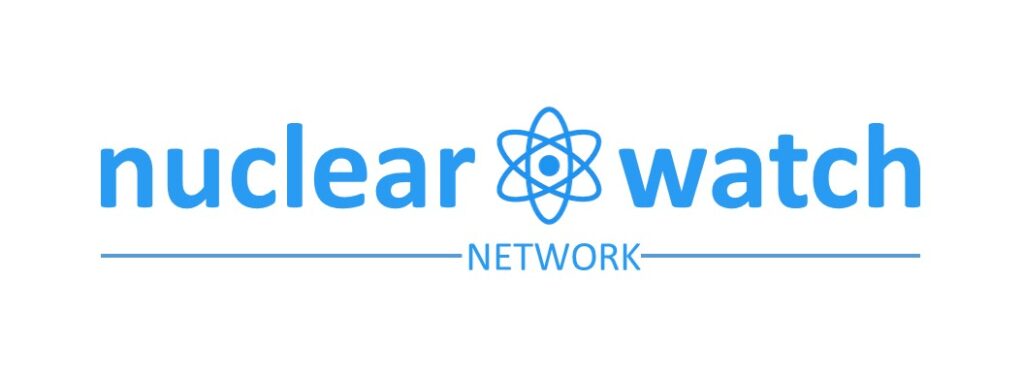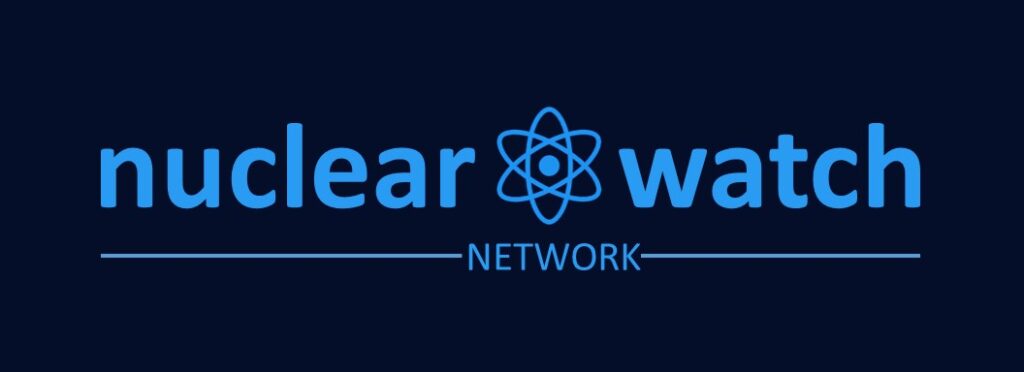The Securitization of Iran’s Nuclear Program amid Recent Conflict and International Responses
Sasan Karimi, Adjunct professor at the University of Tehran
Following military aggression against Iran by Israel, and the United States, marked by U.S. strikes using heavy ordnance, including bunker-busting bombs, on Iran’s nuclear facilities, a renewed phase of securitization targeting Iran’s nuclear program has emerged. This escalation, driven primarily by the United States, European nations, and the International Atomic Energy Agency (IAEA), follows a series of attacks on Iranian military, scientific, and civilian targets, culminating in strikes on three key nuclear sites, including the Fordow facility. President Donald Trump, on June 26, 2025, announced that these facilities were “completely and totally obliterated” [White House, June 26, 2025], a claim reiterated at the NATO summit on June 25, 2025, where he described the strikes as “very, very successful” [NPR, June 25, 2025]. These assertions, purportedly supported by classified intelligence, suggest the destruction of Iran’s enriched uranium stockpiles and nuclear infrastructure.
Despite these claims, IAEA Director General Rafael Mariano Grossi has emphasized the need for inspections to assess the damage and ensure nuclear safety. On June 13, 2025, Grossi noted that initial reports indicated no elevated radiation levels following Israeli attacks [IAEA, June 13, 2025]. However, by June 22, 2025, he briefed the UN Security Council, highlighting a “sharp degradation in nuclear safety and security” due to the risk of radiological release, urging diplomatic engagement to stabilize the situation [IAEA, June 22, 2025]. On June 23, 2025, he estimated “very significant” damage at sites like Fordow, noting craters from ground-penetrating munitions, and on June 25, 2025, suggested that Iran’s enriched uranium might have survived by being relocated [Reuters, June 25, 2025; Al Jazeera, June 23, 2025]. Iran, however, views these inspection demands as an attempt to validate the efficacy of U.S. and Israeli strikes, particularly given the closure of its airspace and the context of what it perceives as unprovoked aggression [Reuters, June 20, 2025].
The conflict began amid ongoing negotiations between Iran, the United States, and the E3 (France, Germany, and the United Kingdom), disrupted by Israel’s unanticipated strikes on Iranian nuclear scientists and military personnel during nighttime operations [NYT, June 19, 2025]. The legality of these actions remains contentious, with Iran arguing that Israel’s attacks violate international law and regional stability, potentially warranting a Chapter VII resolution under the United Nations Charter. The international community’s failure to address these violations has drawn criticism, particularly as Israel, a non-signatory to the Treaty on the Non-Proliferation of Nuclear Weapons (NPT), maintains a significant nuclear arsenal without IAEA oversight [IAEA, June 16, 2025].
The narrative framing Iran’s nuclear program as an imminent threat, purportedly to delay its breakout capability, is undermined by reports of destroyed infrastructure. President Trump’s claims suggest that Iran’s capacity to pursue a military nuclear program has been eliminated [White House, June 21, 2025]. Consequently, further sanctions, IAEA Board of Governors resolutions, or inspections of the destroyed sites appear redundant. However, Grossi’s insistence on verification, coupled with suggestions that enriched uranium may remain intact, sustains pressure on Iran for greater transparency [Reuters, June 25, 2025]. This demand is problematic, as the destroyed sites are reportedly inaccessible, rendering inspections impractical [Al Jazeera, June 23, 2025].
European leaders have advocated for diplomacy to de-escalate tensions. On June 19, 2025, EU foreign policy chief Kaja Kallas and E3 foreign ministers planned talks with Iran to ensure its nuclear program remains civilian-focused [NYT, June 19, 2025]. Following the U.S. strikes, Kallas urged all parties to return to negotiations on June 22, 2025 [NPR, June 22, 2025], while UK Foreign Secretary David Lammy called for Iran to consider de-escalation options on June 24, 2025 [BBC, June 24, 2025]. These efforts reflect Europe’s normative role, contrasting with the U.S.’s military approach and Grossi’s focus on verification.
The IAEA’s persistent calls for access, led by Grossi, risk being perceived as politically motivated, aligning with the interests of specific states, notably Israel and the United States. Israel’s exemption from NPT obligations and lack of IAEA inspections contrasts sharply with Iran’s scrutiny, which accounts for approximately one-fifth of global IAEA inspections without verified evidence of diversion to military purposes [IAEA, June 16, 2025]. Grossi’s approach, diverging from the expected impartiality of a UN watchdog, may undermine the IAEA’s credibility as an international institution [IAEA, June 20, 2025].
Continued pressure on Iran, framed as addressing its nuclear “threat,” could serve as a pretext for further military or political actions, which lack legitimacy given the reported destruction of Iran’s nuclear capabilities [White House, June 21, 2025]. Iran is not the sole victim; international law is eroded by selective enforcement, with a “rules-based order” supplanting established norms. This trend threatens global stability, increasing the costs of self-defense for nations perceiving themselves as vulnerable to arbitrary aggression.
Europe’s acquiescence to U.S. and Israeli interests has diminished its global influence. Despite advocating diplomacy, leaders like Kallas and Lammy have struggled to assert relevance in crises such as the Gaza conflict, India-Pakistan tensions, and the Ukraine-Russia war [NYT, June 19, 2025; BBC, June 24, 2025]. This marginalization underscores Europe’s shift from a normative power to a peripheral actor in global politics.
The international community must act to preserve global peace and stability. The selective application of international law, as evidenced in this conflict, sets a dangerous precedent, potentially destabilizing the non-proliferation regime and regional security [PBS, June 22, 2025]. If unchecked, this erosion of norms could compel states to prioritize self-protection in an increasingly anarchic environment, undermining the legacy of international law as a cornerstone of twentieth-century global governance. Consistent and impartial implementation of legal frameworks is essential to maintain their legitimacy and efficacy.
References
- Al Jazeera. (2025, June 23). UN nuclear chief estimates damage to Iran’s facilities ‘very significant’. Retrieved from https://www.aljazeera.com/news/2025/6/23/un-nuclear-chief-estimates-damage-to-irans-facilities-very-significant
- (2025, June 24). What we know about US air strikes on three Iranian nuclear sites. Retrieved from https://www.bbc.com/news/articles/cvg9r4q99g4o
- (2025, June 13). Statement on the situation in Iran. Retrieved from https://www.iaea.org/newscenter/statements/statement-on-the-situation-in-iran-13-june-2025
- (2025, June 16). IAEA Director General’s Introductory Statement to the Board of Governors. Retrieved from https://www.iaea.org/newscenter/statements/iaea-director-generals-introductory-statement-to-the-board-of-governors-16-june-2025
- (2025, June 20). IAEA Director General Grossi’s Statement to UNSC on Situation in Iran. Retrieved from https://www.iaea.org/newscenter/statements/iaea-director-general-grossis-statement-to-unsc-on-situation-in-iran-20-june-2025
- (2025, June 22). World reacts to U.S. strikes on Iran with alarm, caution — and some praise. Retrieved from https://www.npr.org/2025/06/22/nx-s1-5441661/world-reacts-to-u-s-strikes-on-iran-with-alarm-caution-and-some-praise
- (2025, June 25). Trump doubles down on damage U.S. strikes caused to Iran’s nuclear sites. Retrieved from https://www.npr.org/2025/06/25/nx-s1-5435692/trump-nato-israel-iran
- (2025, June 19). Largely Sidelined on Iran, Europe Makes a Late Push for Diplomacy. Retrieved from https://www.nytimes.com/2025/06/19/world/europe/europe-iran-israel-war-talks-nuclear.html
- (2025, June 22). Nations around the world react to U.S. strikes on Iran, with many calling for diplomacy. Retrieved from https://www.pbs.org/newshour/world/nations-around-the-world-react-to-u-s-strikes-on-iran-with-many-calling-for-diplomacy
- (2025, June 20). Iran says no to nuclear talks during conflict as UN urges restraint. Retrieved from https://www.reuters.com/world/middle-east/israel-iran-air-war-enters-second-week-europe-pushes-diplomacy-2025-06-20/
- (2025, June 25). UN nuclear chief says it’s possible Iran’s highly enriched uranium ‘is there’. Retrieved from https://www.reuters.com/world/europe/iaea-chief-returning-iranian-sites-is-top-priority-2025-06-25/
- (2025, June 23). World Leaders React After U.S. Strikes Iran: Gravely Alarmed. Retrieved from https://time.com/7296530/united-states-strikes-iran-world-leaders-react/
- White House. (2025, June 21). Iran’s nuclear facilities have been obliterated and suggestions otherwise are fake news. Retrieved from https://www.whitehouse.gov/articles/2025/06/irans-nuclear-facilities-have-been-obliterated-and-suggestions-otherwise-are-fake-news/

